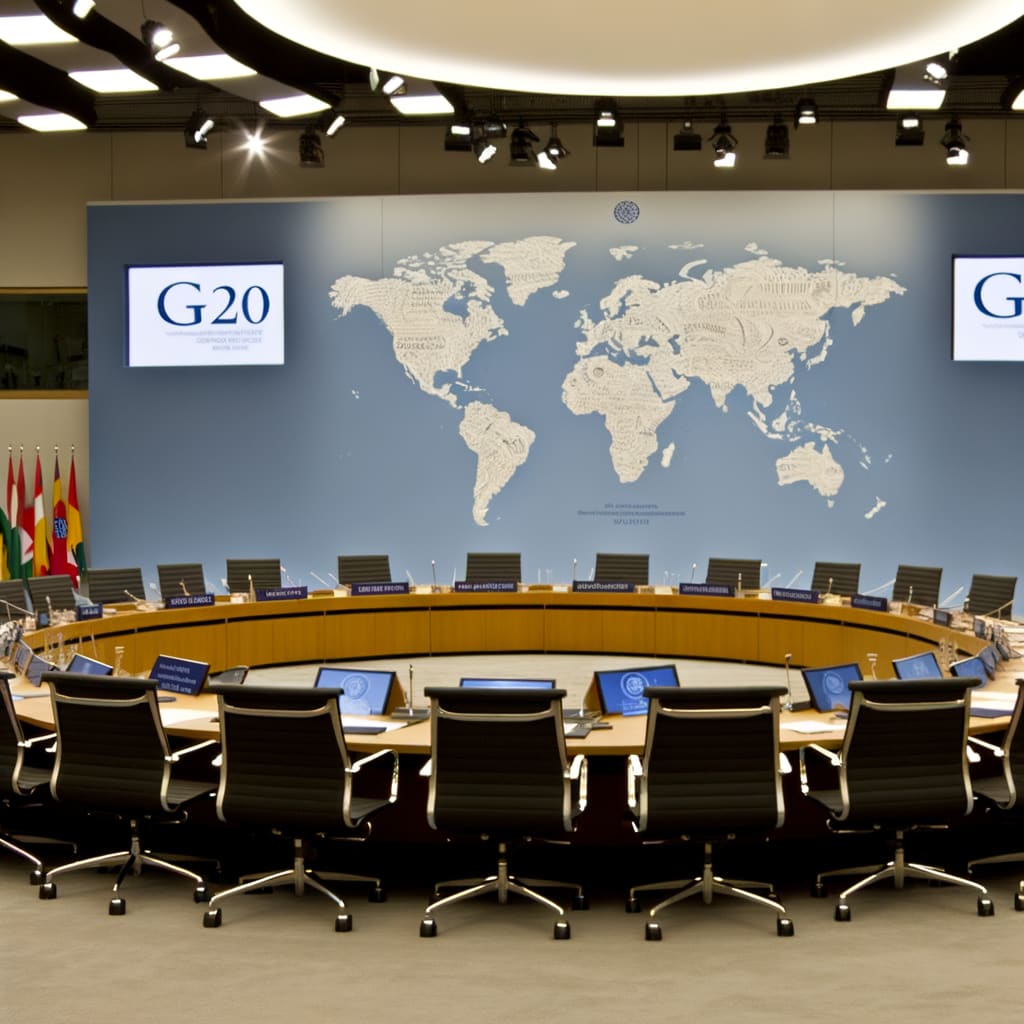South Africa's G20 Summit Marred by US Boycott and Handover Dispute
South Africa's hosting of the G20 summit, a historic first for the African continent, was overshadowed by an unprecedented boycott by the United States and a subsequent handover dispute. The US, which is set to host the event next year, refused to send a top-level official to the summit, leading to South African President Cyril Ramaphosa's refusal to hand over the G20 presidency to a US junior embassy official. The dispute has sparked a heated exchange between the two nations, with each accusing the other of undermining the principles of the G20.
Background and Context
The Trump administration announced its boycott of the G20 summit in Johannesburg over allegations that South Africa is mistreating white Afrikaner farmers. The White House Deputy Press Secretary, Anna Kelly, criticized President Ramaphosa for refusing to allow a US embassy delegation to participate in the summit's closing ceremony. Despite these accusations, South Africa continued to promote its agenda, focusing on the expectations of developing countries.
Key Developments
The two-day summit, which opened on Saturday, took place amid global political tensions. Despite the US boycott, South Africa managed to secure crucial diplomatic backing from China. The absence of the US allowed China and its allies to drive consensus on a Global South agenda.
President Ramaphosa reaffirmed the significance of the summit despite the US boycott, declaring, This G20 is not about the US. It’s about all the members.
His comment came as leaders adopted a declaration on climate change, renewable energy, and debt relief, despite the US opposition.
Implications and Reactions
The US boycott and the ensuing handover dispute have stirred international reactions. Canadian Prime Minister Mark Carney remarked that the world could make progress on a range of issues without US involvement, and that the economic center of gravity
is shifting away from America.
South African Foreign Minister Ronald Lamola commented on the US's role in the G20, saying, "The United States is a member of the G20, and if they want to be represented, they can still send anyone at the right level.”
Conclusion: Current Status
Despite the US' boycott and allegations, the G20 summit concluded with South Africa's President Cyril Ramaphosa delivering the closing remarks and banging the gavel. South Africa presented the event as a triumph for multilateralism. The summit ended with South Africa claiming a diplomatic victory after securing agreement on a wide-ranging declaration, despite warnings from several leaders that the forum is struggling to remain relevant in a fragmenting world.
As the host nation, South Africa has expressed its commitment to advocating for the issues it prioritised during the summit, through its further participation in the G20 and in other international and regional forums. The dispute with the US, however, casts a long shadow over the achievements of the summit and the future of the G20.

